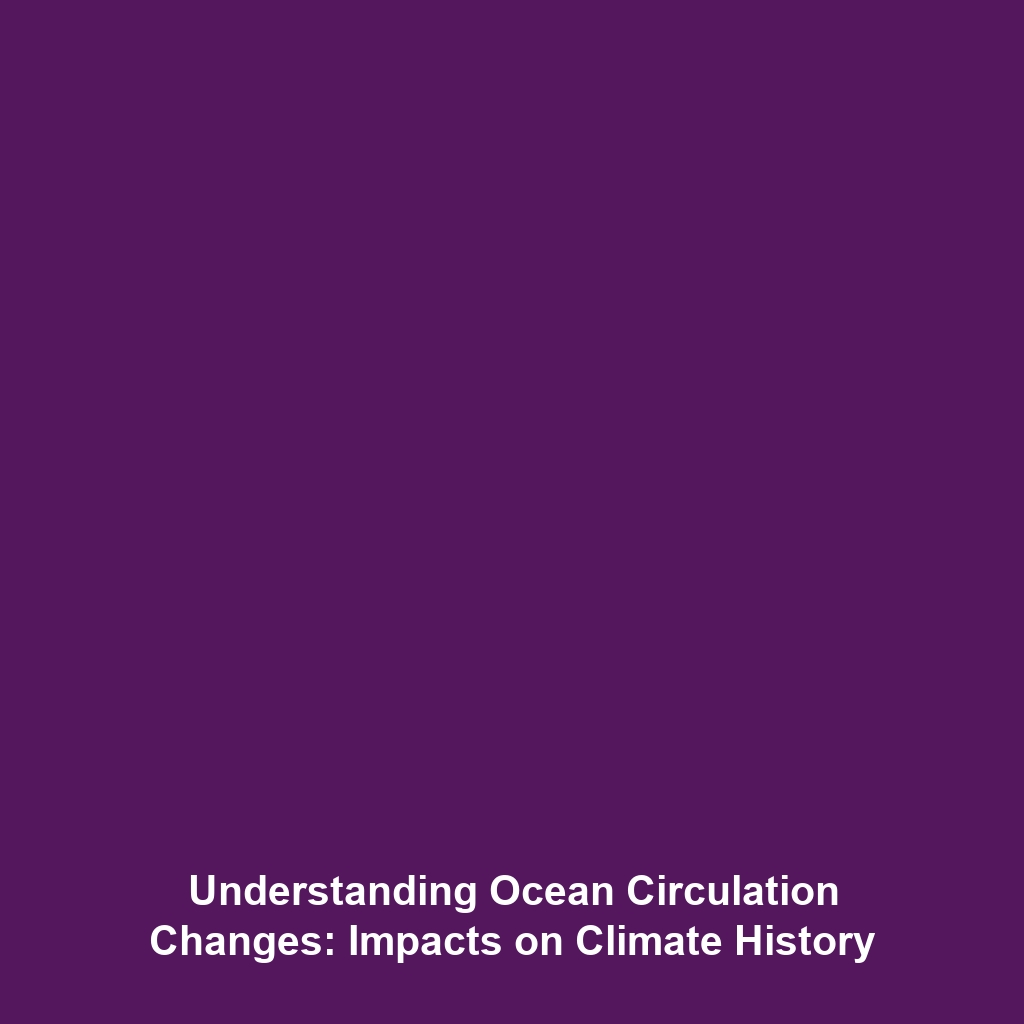Understanding Modern Climate Change in the Context of Climate History
Introduction
Modern climate change is one of the most pressing challenges facing humanity today. Defined as significant changes in temperature, precipitation, and weather patterns over relatively short periods, this phenomenon has its roots deeply embedded in the broader narrative of climate history. As we delve into the significance of modern climate change, it is essential to comprehend its impact on ecosystems, human societies, and the overall climate system, particularly as it relates to historical climate events. This article explores major principles, applications, challenges, and potential innovations in modern climate change as it intersects with climate history.
Key Concepts of Modern Climate Change
Understanding Climate Change Dynamics
Modern climate change is characterized by the following concepts:
- Greenhouse Gas Emissions: Human activities, particularly fossil fuel combustion, have led to a substantial increase in greenhouse gases, notably carbon dioxide and methane, intensifying the greenhouse effect.
- Global Warming: Referring specifically to the rise in Earth’s average surface temperature due to increased greenhouse gas concentrations.
- Climate Feedback Loops: Mechanisms such as melting ice and changing vegetation patterns that can exacerbate climate change effects.
The intersection of these concepts with climate history reveals patterns of natural climate variations and how modern changes are unprecedented in their speed and intensity.
Applications and Real-World Uses
The understanding of modern climate change has practical implications across various sectors:
- Policy Development: Governments utilize climate change data to formulate effective environmental regulations and policies.
- Renewable Energy Innovations: The shift from fossil fuels to renewable energy sources is driven by the need to reduce carbon footprints.
- Agricultural Practices: Farmers are adopting climate-smart agriculture methods, adapting to changing climatic conditions to ensure food security.
These applications illustrate how modern climate change directly influences climate history by shaping human adaptation strategies over time.
Current Challenges
Studying and addressing modern climate change presents several challenges, including:
- Data Accuracy: Inconsistent data collection methods hinder comprehensive climate modeling.
- Global Cooperation: The need for international collaboration is often undermined by economic and political differences.
- Public Awareness: Misinformation and climate change skepticism impede collective action toward mitigation.
Future Research and Innovations
Future research is critical for understanding and combating modern climate change. Key areas of focus include:
- Enhanced Climate Modeling: Development of predictive models that integrate complex climate variables and potential human impacts.
- Geoengineering: Research into large-scale interventions aimed at altering Earth’s climate, such as solar radiation management.
- Carbon Capture Technologies: Innovations focusing on capturing atmospheric CO2 to mitigate climate impacts.
Conclusion
In summary, modern climate change plays a pivotal role in shaping the course of climate history, influencing both natural and human systems. Addressing this phenomenon requires an understanding of its concepts, real-world applications, current challenges, and vital future innovations. As individuals and communities, we must engage in informed discussions and actions toward sustainability. For more insights into climate-related issues, visit our articles on climate policies and renewable energy solutions.

Leave a Reply